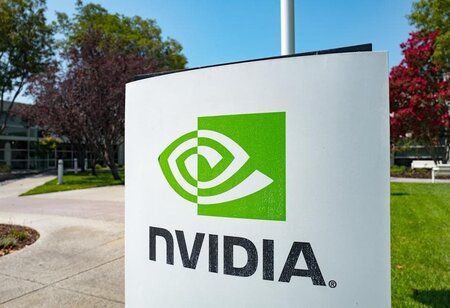By Global Consultants Review Team
 Tech giant Nvidia clashed with Amazon-backed artificial intelligence startup Anthropic in a rare public dispute over US chip export policy, with AI chip regulations set to go into effect soon.
Tech giant Nvidia clashed with Amazon-backed artificial intelligence startup Anthropic in a rare public dispute over US chip export policy, with AI chip regulations set to go into effect soon.
"American firms should focus on innovation and rise to the challenge, rather than tell tall tales that large, heavy, and sensitive electronics are somehow smuggled in 'baby bumps' or 'alongside live lobsters,'" a representative of Nvidia stated.
Anthropic stated in a blog post on Wednesday that it "strongly supports" the US Department of Commerce's 'Framework for Artificial Intelligence Diffusion'. In a blog post on Wednesday, it advocated for stricter controls and enforcement, claiming Chinese smugglers concealed chips in "prosthetic baby bumps" and "packed alongside live lobsters".
Nvidia, the world's leading GPU manufacturer, argued that restricting chip sales to China and other countries jeopardizes US technological leadership. Tariffs and a pending Biden-era regulation on chip exports are among the obstacles that Nvidia faces in the United States, which would have a negative impact on the company's international sales. Nvidia recently stated that the new licensing requirements affecting its H20AI chips for the Chinese market could result in a $5.5 billion revenue loss in the first quarter of fiscal year 2026.
What is the AI diffusion export rule?
The regulation seeks to divide access to the most advanced AI chips and control specific model weights in order to keep the most sophisticated computing power in the United States and its allies, rather than in China. The US Department of Commerce issued 'The Framework for Artificial Intelligence Diffusion' in January, one week before former President Joe Biden's administration ended. Companies must comply with the restrictions beginning May 15.
Currently, the rule divides the world into three tiers. In the first tier, seventeen countries, including Taiwan, can receive an unlimited number of chips. Some 120 other countries are in the second tier, which means they have limited access to AI chips. Third-tier countries of concern include China, Russia, Iran, and North Korea.
Trump considers changes to the AI chip export rule
President Donald Trump is reportedly revising these restrictions, adding uncertainty to an already contentious policy. Trump administration officials are considering replacing the rule's tiered approach to access with a global licensing regime based on government-to-government agreements. According to Reuters, such a structure would most likely fit into Trump's overall trade strategy of striking deals with individual countries.
We use cookies to ensure you get the best experience on our website. Read more...